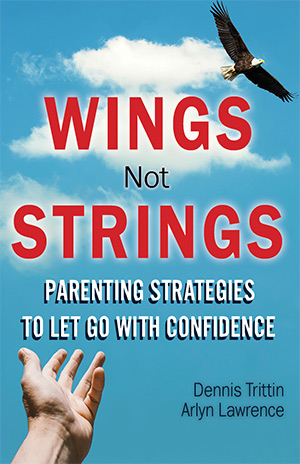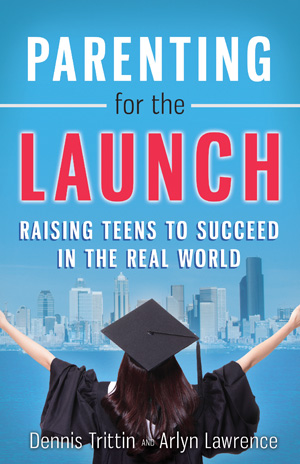How Gratitude Can Change Your Life
11/12/2018 8:45:21 PM
 Have you ever noticed how people experiencing the same thing can react so differently? Why is it that some who face a loss or disappointment maintain a surprisingly upbeat spirit, while others wallow in self-pity or anger? Some seemingly shrug it off while others are consumed by it. Some battle through it, sustained by their resilience, hope, and faith, while others suffer from feelings of entitlement or victimhood. Same situations; polar opposite reactions.
Have you ever noticed how people experiencing the same thing can react so differently? Why is it that some who face a loss or disappointment maintain a surprisingly upbeat spirit, while others wallow in self-pity or anger? Some seemingly shrug it off while others are consumed by it. Some battle through it, sustained by their resilience, hope, and faith, while others suffer from feelings of entitlement or victimhood. Same situations; polar opposite reactions.For most of us, it’s more natural to struggle when adversity strikes—at least initially. After all, we may feel hurt, disappointed, lonely, scared, or angry. That’s why people who are able to stay positive, even under life’s most difficult trials, really stand out.
Do these people have a special ingredient? I believe they do, and that ingredient is gratefulness. Regardless of their circumstances, grateful people find a way to call on their blessings and appreciate what they have. They choose to see the glass as half full. They are sustained by hope. They view adversity as a challenge and an opportunity for growth. And, despite living in a materialistic world, they don’t allow economic circumstances to dictate their happiness. (In my experience, this is the most common takeaway from students who go on mission trips.)
Those of us who are surrounded by parents, family members, teachers, mentors, and coaches who model this character trait are much more likely to be grateful than those who are not. Gratitude has a way of “rubbing off” on others because it is such an inspirational and admirable virtue. As you self reflect on your “gratitude quotient,” consider the following proven benefits:
- Gratitude improves your physical health. Studies have shown that grateful people have fewer aches and pains (yes, you read that right), and are more likely to take care of their physical health. They tend to practice healthy habits such as exercising and getting regular check-ups, which can contribute to increased longevity and life quality.
- Grateful people have better sleep. Here’s a tip: spend a few minutes jotting down what you’re thankful before bed every night, and you will likely have a longer and more restful sleep.
- Gratitude helps create better relationships. Of course, saying “thank you” is a practice of good manners, but a 2014 study in Emotion shows that it can also win you new friends! Saying “thank you” to an acquaintance makes them more likely to seek out further engagement. So, whether you’re thanking the local barista for your latte or a distant relative for graduation gift, acknowledging their efforts can open the door to new and better relationships.
- Gratitude can help improve your self-esteem. For years, research has shown that gratitude can help reduce stress. However, a 2014 study published in Journal of Applied Sport Psychology has shown that practicing thankfulness can actually play a major role in overcoming trauma and cultivating resilience. Recognizing all you’re grateful for—even in the hardest of times—can be life changing.
- Gratitude can reduce aggression (and increase empathy). Did you know that grateful people are more likely to act in a pro-social manner, even when the people around them are acting negatively? Grateful people are less resentful and retaliatory and demonstrate greater empathy and understanding (than those who do not engage in gratitude practices).
Of course, this looks different for everyone (some people write in a gratitude journal, some people silently acknowledge all that they are grateful for, others decide to pay it forward), but the point is that being thankful can completely transform your life. Here are some additional ideas to build your “gratitude quotient:”
- Actively seek out and surround yourself with grateful people. Ask them to share how they maintain a positive attitude while facing adversity and disappointment. Some of their strategies may work for you.
- Volunteer to help those less fortunate. This is especially beneficial to counter an entitlement mentality.
- Maintain your sense of hope in all circumstances. Consider when you overcame challenges and draw on them when new situations arise.
Developing gratitude is an especially beneficial life practice for teens and young adults, as they are constantly inundated with messages telling them they need to be better, look different, buy certain things, and generally just “keep up” with the people around them (not to mention the peer pressure they feel on a daily basis!). Gratitude is a powerful antidote to entitlement.
So, whether you’re a teen, college student, parent, or educator, know that we can all use some of these positive side effects in our lives! This holiday season, we encourage you to begin the daily habit of practicing gratitude. Meditate silently on your blessings, jot down a bullet-pointed list every night, or talk about what you’re thankful for around the dinner table. However you do it, pay close attention to how it transforms your inner world and the world around you for the better.
Let’s make Thanksgiving Day every day.
(For more ways gratitude can change your life, check out this article published in Psychology Today.)
Tagged as: gratitude, thankfulness, giving thanks, thanksgiving, teens, peer pressure, life skills, life perspective, character, integrity



















